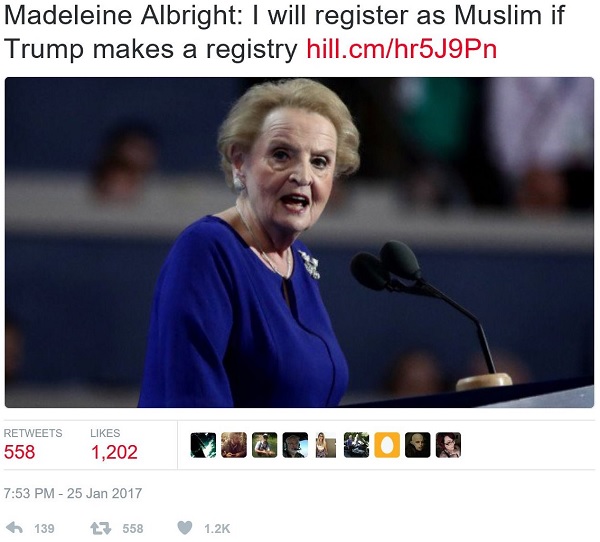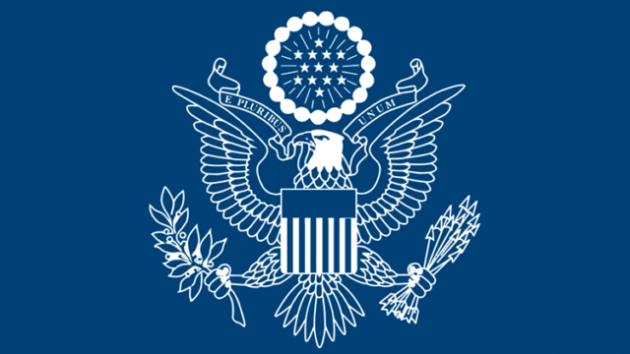Dear Ms. Albright: The U.S. already collects religious identity data — including for Muslims
Madeleine Jana Korbel Albright is an American politician and diplomat. She is the first woman to have become the United States Secretary of State under former President Bill Clinton. After President Trump signed several Executive Orders dealing with immigration and refugee resettlement Albright tweeted the following:

Dear Ms. Albright, there already is data available on the religious affiliation, a registry if you will, of millions of Americans and immigrants, including Muslims. Even the U.S. Department of State has a Temporary Religious Worker Visa form. The U.S. State Department is also required to enforce the McCarran-Walter Act of 1952 which was meant to exclude certain immigrants from immigrating to America. The McCarran-Walter Act moved away from excluding immigrants based simply upon country of origin. Instead it focused upon denying immigrants who were unlawful, immoral, diseased in any way, politically radical etc. and accepting those who were willing and able to assimilate into the U.S. economic, social, and political structures, which restructured how immigration law was handled.
According the U.S. Census Bureau website, the bureau “statistics on the growth, distribution, and characteristics of the U.S. population. The principal source of these data is the U.S. Census Bureau, which conducts a decennial census of population, a monthly population survey, a program of population estimates and projections, and a number of other periodic surveys relating to population characteristics.”
The U.S. Census Bureau collects religious identity as follows:
The methodology of the American Religious Identification Survey (ARIS) 2008 replicated that used in previous surveys. The three surveys are based on random-digit-dialing telephone surveys of residential households in the continental U.S.A (48 states): 54,461 interviews in 2008, 50,281 in 2001, and 113,723 in 1990. Respondents were asked to describe themselves in terms of religion with an open-ended question. Interviewers did not prompt or offer a suggested list of potential answers. Moreover, the self-description of respondents was not based on whether established religious bodies, institutions, churches, mosques or synagogues considered them to be members. Instead, the surveys sought to determine whether the respondents regarded themselves as adherents of a religious community. Subjective rather than objective standards of religious identification were tapped by the surveys] [Emphasis added]
Here are links to three Census Bureau documents on religious identification in the United States:
75 – Self-Described Religious Identification of Adult Population
77 – Christian Church Adherents and Jewish Population, States
It is the role of all U.S. government agencies to insure those coming to America are properly vetted, whether they here temporarily or are seeking citizenship. It is important for U.S. government agencies to maintain data on the religious identification of America citizens, temporary visitors and those seeking citizenship. Not to do so impacts many programs and the national security of the United States.
Therefore, Ms. Albright you may contact the U.S. Census Bureau and take their questionnaire for the 2020 Census and declare yourself a Muslim. Your religious identification will be duly recorded and noted.
RELATED ARTICLE: The Immigration and Nationality Act of 1952 (Walter-McCarran Act)
EDITORS NOTE: The Library of Congress lists countries who have a religious basis for legislation and those whose constitution designates a religious state.



Leave a Reply
Want to join the discussion?Feel free to contribute!